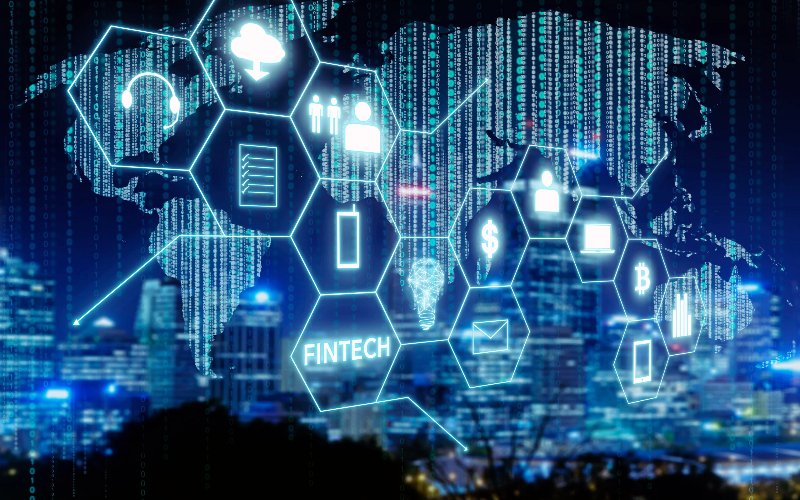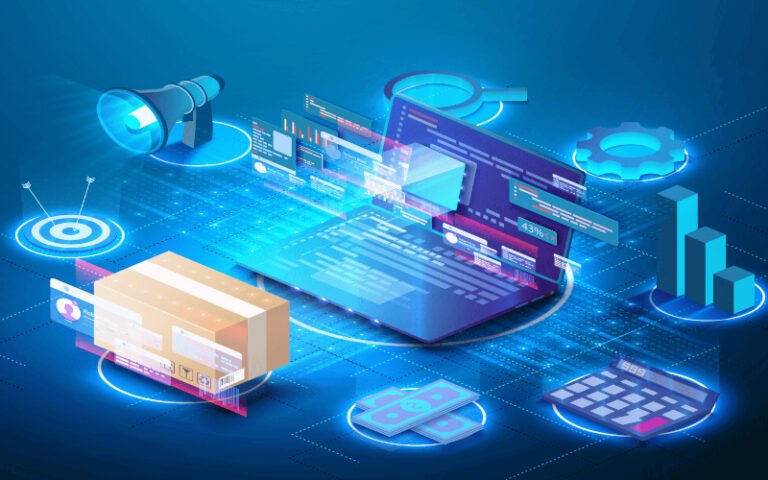
Introduction to FinTech Innovations
In recent years, FinTech innovations have revolutionized the financial services industry, disrupting traditional banking and creating a more accessible, efficient, and transparent financial landscape. FinTech, short for financial technology, refers to the integration of advanced technologies such as artificial intelligence (AI), blockchain, and big data into financial services.
These innovations are not just enhancing user experiences but are also transforming how financial institutions operate. From mobile payments to decentralized finance (DeFi), FinTech is creating a wave of change that touches every corner of the global economy.
How FinTech Innovations Are Transforming Financial Services
The rise of FinTech innovations has brought about unprecedented changes in the way financial services are delivered. Let’s explore some key areas where FinTech is making an impact:
1. Digital Payments
One of the most notable FinTech innovations is the emergence of digital payments. Services like PayPal, Venmo, and Apple Pay have revolutionized how people send and receive money. These platforms allow for instant, secure, and convenient transactions, reducing the need for physical cash or traditional bank transfers.
With the increasing adoption of digital wallets and contactless payments, financial transactions are becoming faster and more seamless. The COVID-19 pandemic further accelerated the adoption of these technologies, as people sought more touch-free, online solutions.
2. Peer-to-Peer Lending (P2P)
FinTech innovations have also paved the way for peer-to-peer (P2P) lending platforms. Unlike traditional loans, where banks act as intermediaries, P2P lending connects borrowers directly with investors. This cuts out the middleman, offering lower interest rates to borrowers and higher returns for investors.
Platforms like LendingClub and Prosper have democratized the lending process, providing access to credit for those who might otherwise struggle to secure loans through conventional banking systems.
3. Blockchain and Cryptocurrencies
Blockchain technology and cryptocurrencies are perhaps the most disruptive FinTech innovations. Blockchain, a decentralized ledger, has opened the door to secure, transparent transactions without the need for intermediaries. Cryptocurrencies like Bitcoin and Ethereum are revolutionizing the concept of money and asset ownership.
The rise of decentralized finance (DeFi) platforms, built on blockchain technology, has enabled users to borrow, lend, and trade assets in a decentralized environment. This innovation has the potential to overhaul the entire financial ecosystem, providing more autonomy to users and reducing dependency on centralized institutions.
The Role of Artificial Intelligence in FinTech Innovations
Artificial intelligence (AI) plays a pivotal role in FinTech innovations, offering advanced data analysis, personalized financial services, and improved decision-making processes. Here’s how AI is transforming the financial landscape:
1. Robo-Advisors
Robo-advisors are one of the most popular AI-driven FinTech innovations. These digital platforms offer automated, algorithm-driven financial planning services with minimal human intervention. By analyzing data such as investment goals, risk tolerance, and market trends, robo-advisors provide users with tailored investment strategies.
Companies like Betterment and Wealthfront are leading the way in this space, making wealth management accessible to a broader audience by offering low-cost, user-friendly solutions.
2. Fraud Detection and Risk Management
AI-powered fraud detection systems are another significant development in FinTech innovations. These systems use machine learning algorithms to detect suspicious patterns and flag potential fraudulent activities in real-time. As cyber threats evolve, AI helps financial institutions stay ahead of the curve by identifying risks and protecting customers.
Additionally, AI is used to enhance risk management strategies by analyzing massive amounts of data to predict market trends, allowing financial institutions to make more informed decisions.
FinTech Innovations and Financial Inclusion
One of the most profound impacts of FinTech innovations is the increased focus on financial inclusion. In many parts of the world, especially in developing countries, access to traditional banking services is limited. FinTech offers innovative solutions to bridge this gap.
1. Mobile Banking
In regions where physical banking infrastructure is lacking, mobile banking has emerged as a key FinTech innovation. Platforms like M-Pesa in Kenya allow users to access financial services through their mobile phones, offering features such as money transfers, loans, and savings accounts.
This innovation has empowered millions of people who previously had no access to banking services, promoting economic growth and development in underserved areas.
2. Microfinance and Crowdfunding
Microfinance platforms, another example of FinTech innovations, provide small loans to individuals or small businesses that might not qualify for traditional financing. Crowdfunding platforms like Kickstarter and GoFundMe allow entrepreneurs to raise capital for their projects, bypassing traditional venture capital routes.
These innovations are leveling the playing field, giving individuals and small businesses the financial tools they need to succeed.
Challenges and Risks Associated with FinTech Innovations
While FinTech innovations offer numerous benefits, they also present challenges and risks that need to be addressed to ensure a sustainable future for the industry.
1. Regulatory Challenges
The rapid pace of FinTech innovations has left regulators struggling to keep up. Traditional financial systems are highly regulated to protect consumers and maintain economic stability, but FinTech operates in a more fluid and fast-evolving environment. Ensuring that regulations evolve alongside these technologies is crucial to preventing fraud, protecting user data, and maintaining market integrity.
2. Cybersecurity Threats
As financial services move online, they become more susceptible to cyber-attacks. FinTech companies must invest heavily in cybersecurity measures to protect their systems and customer data. The increasing complexity of cyber threats means that companies need to remain vigilant and continuously update their defenses.
The Future of FinTech Innovations
The future of FinTech innovations is bright, with continuous advancements shaping the financial industry. Here are a few trends to watch:
1. Open Banking
Open banking is one of the most exciting trends in the world of FinTech innovations. It allows third-party developers to build applications and services around financial institutions, enabling better data sharing and collaboration. This could lead to more personalized services for customers and greater competition in the financial sector.
2. Digital Currencies
With central banks around the world exploring digital currencies, we are likely to see a rise in government-backed digital currencies in the near future. These currencies could revolutionize how we interact with money, creating more efficient and secure payment systems.
3. Green FinTech
Sustainability is becoming a critical issue in finance, and FinTech innovations are playing a role in creating more eco-friendly financial services. Green FinTech focuses on using technology to promote sustainable practices, from carbon footprint tracking to eco-friendly investment platforms.
Conclusion: FinTech Innovations are Redefining Finance
In conclusion, FinTech innovations are fundamentally changing the financial industry by making services more accessible, efficient, and secure. From blockchain and AI to mobile banking and P2P lending, these technologies are reshaping how we think about money and financial services.
However, as with any transformative technology, challenges such as regulation, cybersecurity, and inclusivity need to be addressed. With the right balance between innovation and governance, FinTech innovations will continue to drive progress in the global financial landscape, making it more inclusive, transparent, and technologically advanced.
Also visit on techitl.com.



